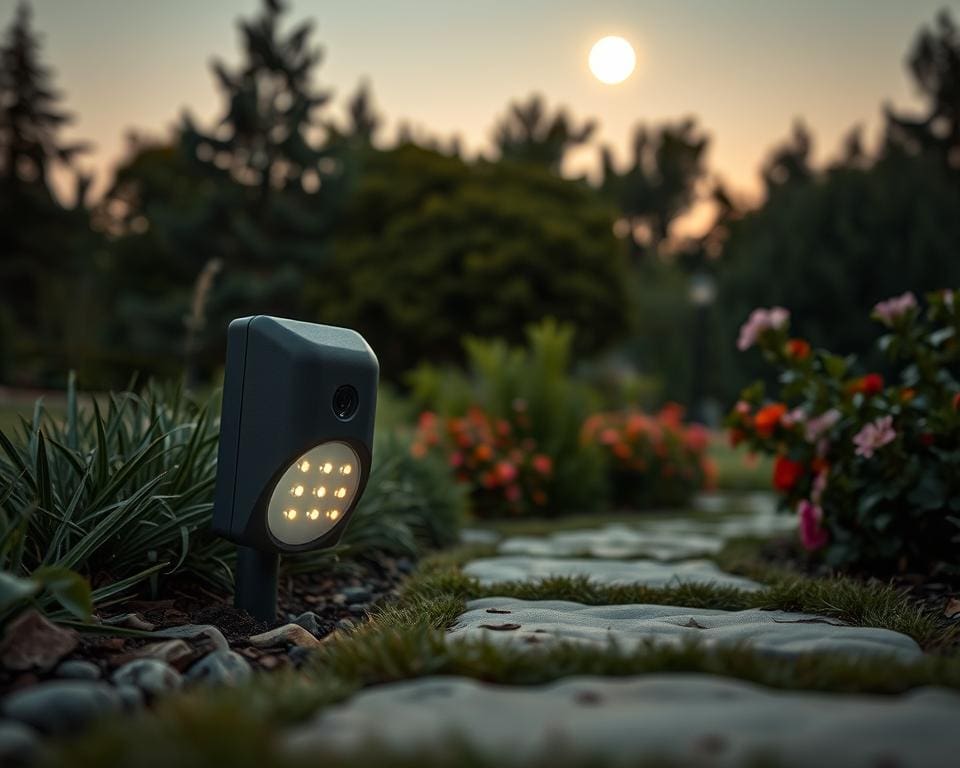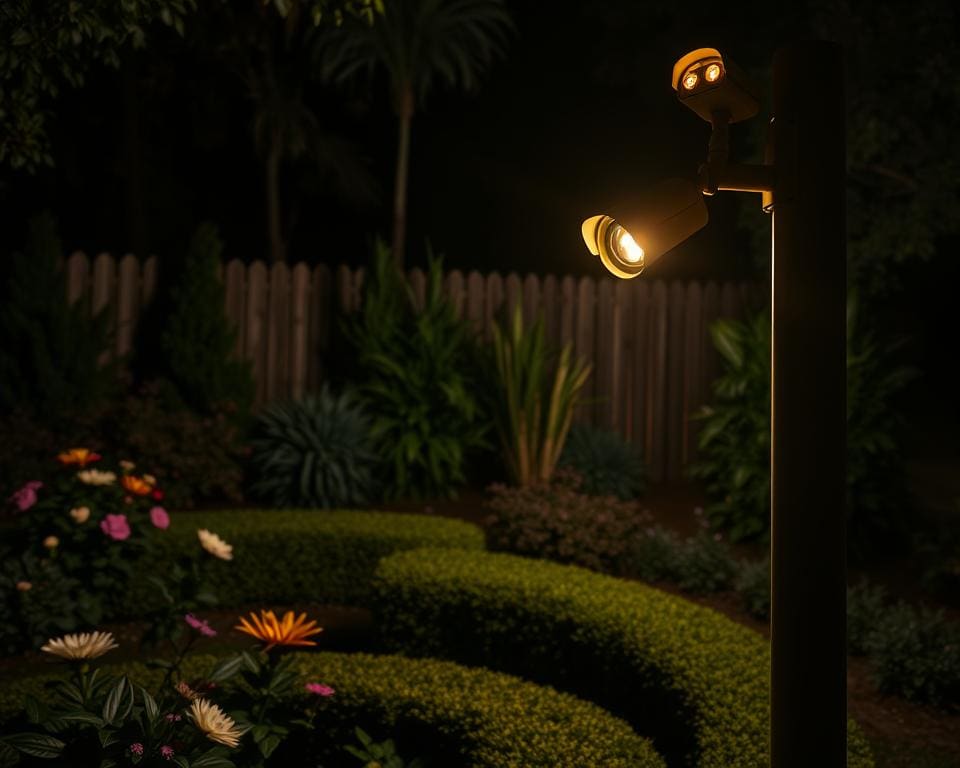As the sun sets and shadows stretch across gardens, the question of security becomes paramount for homeowners. Can a garden alarm detect intruders after dark? This inquiry is at the forefront of many minds, especially with statistics indicating that a significant number of burglaries occur during nighttime hours. An effective garden alarm not only enhances nighttime security but also serves as a vital component in intruder detection, providing peace of mind when it is needed most. In a world where outdoor spaces are increasingly left vulnerable after dark, understanding the capabilities of garden alarms is essential for safeguarding your property.
Understanding Garden Alarms
Garden alarms play a crucial role in enhancing outdoor security by providing a reliable method for intruder detection. These systems are specifically designed to monitor outdoor areas and protect your property from potential threats. While some garden alarms are relatively simple, employing basic motion-activated lights, others are more complex and interconnected with comprehensive home security systems. Through their varied capabilities, garden alarms deliver peace of mind to homeowners, allowing them to enjoy their outdoor spaces without worry.
What is a garden alarm?
A garden alarm is an outdoor security system engineered to detect movement in specified areas surrounding a property. This type of alarm typically utilises sensors to identify any movement, alerting homeowners to potential intruders. Many models offer features such as alarms, lights, and notifications to smartphones, making it easier than ever to keep an eye on your garden, regardless of where you are.
The technology behind garden alarms
The effectiveness of a garden alarm lies in its underlying technology. Most systems feature motion sensors for intruder detection, which activate when someone enters the monitored zone. Popular technologies include:
- Passive Infrared (PIR) sensors – these detect heat from moving objects, making them highly effective for outdoor use.
- Microwave detectors – these emit microwave signals and can detect movement even through obstacles.
- Video surveillance – integrated cameras provide visual monitoring, allowing for real-time inspection of outdoor spaces.
Through the integration of these technologies, garden alarms contribute significantly to outdoor security, providing homeowners with reliable protection against intruders.

Can a garden alarm detect intruders after dark?
The effectiveness of garden alarms in detecting intruders after dark is a crucial consideration for homeowners seeking enhanced nighttime security. Nighttime often brings unique challenges, such as diminished visibility and an increased tendency for covert behaviour among potential intruders. Understanding how modern technology in garden alarms addresses these challenges can help in recognising their role in outdoor security.
How effective are garden alarms during night-time?
Many garden alarms today are equipped with sophisticated features aimed at functioning effectively in the dark. Devices fitted with night vision technology provide enhanced visibility, allowing homeowners to monitor their outdoor spaces even when the sun sets. This capability can significantly contribute to assessing whether a garden alarm can detect intruders after dark.
Additionally, infrared sensors are common in many models, detecting heat signatures and movements that are not visible to the naked eye. This type of technology ensures that any movement within the monitored area triggers the alarm, alerting homeowners to possible intruders.
Research supports the notion that visible security measures lead to reduced theft incidents. Alarms that emit loud sounds when triggered serve as both a deterrent for intruders and a critical alert mechanism for residents. A well-placed garden alarm can turn a simple garden into a protective barrier, making it an essential aspect of outdoor security during the night.
Types of Garden Alarms
Choosing the right garden alarm is essential for effective outdoor security. Various types exist, each with unique features that cater to different needs. Understanding these types can significantly enhance your ability to protect your property.
Motion sensor alarms
Motion sensor alarms serve as a key component of modern burglar alarm systems. Designed to detect movement within a specified area, these systems trigger alerts whenever suspicious activity occurs. Ideal for gardens, these alarms can cover a wide range, ensuring intruders are detected promptly. Property owners often appreciate their effectiveness at night, providing additional peace of mind.
Infrared sensors
Infrared sensors operate by detecting the heat emitted by moving objects. This technology proves highly effective for outdoor surveillance after dark. As intruders approach, the sensors react to their body heat, setting off an alarm or notifying the homeowner. Such systems offer a reliable alternative to traditional methods, improving overall security measures for the garden.
Wired vs. wireless options
When considering a garden alarm, the choice between wired vs. wireless options is crucial. Wired systems often require professional installation, making them more complex. Yet, they tend to offer reliability and consistent performance. Conversely, wireless options provide flexibility in installation. Homeowners can place them in various locations without the need for extensive wiring. Evaluating the advantages and disadvantages of each type helps in making an informed decision.
Features to Look for in a Garden Alarm
When selecting a garden alarm, various features play a crucial role in ensuring maximum security for your outdoor space. The right garden alarm features not only enhance intruder detection but also provide peace of mind for homeowners.
Night vision capability
An essential feature to consider is night vision capability. This ensures that the garden alarm can effectively monitor your property in low-light conditions. With effective night vision, it becomes possible to identify suspicious movements or potential intruders even after the sun sets.
Sound alarms and sirens
Sound alarms are vital components of any garden security system. These alarms serve as immediate deterrents against intruders, alerting both homeowners and surrounding properties. A loud siren can prevent a break-in by startling potential threats, making sound alarms an indispensable garden alarm feature.
Mobile app connectivity
In today’s digital age, mobile app connectivity has transformed the way homeowners manage security. With this feature, you can monitor your garden alarms remotely, receive real-time alerts, and even view live camera feeds from your device. This level of control ensures that you remain informed about your property’s safety, whether you are at home or away.
Benefits of Using a Garden Alarm for Outdoor Security
Investing in a garden alarm offers numerous advantages that extend far beyond mere convenience. Homeowners seeking to reinforce outdoor security can experience significant peace of mind after dark, knowing that their property is under vigilant protection. The most notable benefit stems from enhanced detection of intruders, allowing for timely alerts and swift action when necessary.
Enhanced detection of intruders
Garden alarms utilise advanced technology to detect movement and unusual activity within their designated zones. This proactive approach significantly improves intruder detection, minimising the risk of burglary or unwanted intrusions. By promptly alerting homeowners, these systems not only prevent theft but also enhance overall safety for family members and pets. Such protection empowers individuals, allowing them to focus on their daily lives without the looming fear of potential threats.
Peace of mind after dark
After dusk, uncertainty can often accompany the darkness. With a garden alarm in place, homeowners gain a new level of assurance. The knowledge that outdoor security is actively monitored provides a sense of wellbeing, dissipating anxieties associated with being vulnerable. This emotional comfort positively impacts personal happiness and fosters a more relaxed home environment. Many users have reported a noticeable increase in their overall quality of life, highlighting another of the notable benefits of garden alarms.
How to Choose the Right Garden Alarm
Selecting an appropriate garden alarm involves a careful examination of both the property layout and specific installation considerations. Each garden is unique, requiring a tailored approach to ensure optimal security.
Evaluating your property’s layout
A thorough evaluation of the property layout is essential for achieving effective security. Homeowners should consider various factors, including:
- The locations of entry points, such as gates and doors
- Features of the garden that may obstruct the alarm’s effectiveness
- Areas that present vulnerabilities, where intruders may target
By taking these elements into account, individuals can identify the most effective locations for motion sensors and cameras, helping to maximise coverage and enhance overall security.
Considerations for installation
When contemplating how to choose the right garden alarm, understanding installation considerations is invaluable. Homeowners can weigh the pros and cons of:
- DIY installation versus hiring professional services
- The availability of power sources for wireless devices
- Integration possibilities with existing security systems
These factors influence not only the functionality of the alarm but also how seamlessly it fits into the overall security strategy for the property.
Maintaining Your Garden Alarm
To ensure that your garden alarm remains effective in safeguarding your property, regular maintenance is essential. This begins with routine testing of the alarm system, which will help you identify any issues before they become significant problems. Just as with any security measure, proactive checks can prevent failures when you need the system most, thereby enhancing your outdoor security.
Moreover, keeping the sensors clean is fundamental in avoiding false alerts. Dirt, leaves, and other debris can obstruct sensor functionality, leading to unnecessary disturbances or missed intrusions. An occasional wipe-down and thorough inspection will ensure that your alarm responds accurately at all times, reinforcing the protection around your garden.
It’s also vital to routinely check the battery life in wireless systems, as well as considering seasonal factors. For instance, as foliage grows during spring and summer, the positioning of your alarm may need adjustments to maintain its efficacy. By prioritising these actions, you not only prolong the lifespan of your devices but also ensure they deliver optimal performance, making a considerable impact on your outdoor security preparations.









